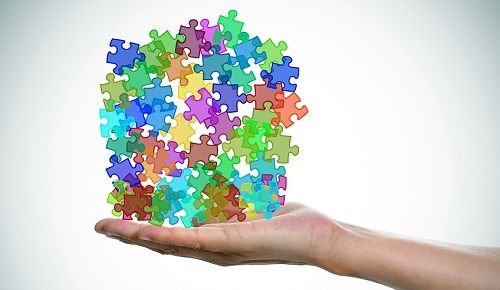Autism in Children May Be Measured By Blood Protein
Two blood proteins have shown a combined 82% accuracy in diagnosing ASD in a group of pediatric patients.

Autism Spectrum Disorder (ASD) research has been hindered in past years by a wide variation in pediatric symptoms, with a number of comorbid factors associated with the neurodevelopment disorder as well.
But a recent study has uncovered a potential universal biological marker for ASD — an illumination into the common disorder that has eluded researchers. A set of measurable proteins in the blood may enable doctors to diagnose ASD early on.
Researchers from the Peter O’Donnell Jr. Brain Institute at the University of Texas Southwestern Medical Center — led by senior author and professor of psychiatry Dwight German, PhD — discovered that 2 protein levels were able to help diagnose 75% of studied children for ASD. That accuracy improved to 82% when the 2 protein levels were measured together.
In a study of 43 ASD and 39 typically-developing (TD) boys, aged 2-8 years, fasting blood test results sought out a biological marker in ASD. Researchers replicated the serum biomarker proteins identified on the Myriad Rules-Based Medicine (RBM) platform by subsequently analyzing proteins on a Meso Scales Discovery (MSD) platform run in-house.
The MSD platform is more sensitive, according to the study, and is capable of reliably detecting different proteins across a broad range of concentrations, as used with the subject’s blood tests.
Test results returned that both inflammatory protein interleukin-8 (IL-8) and thyroid-stimulating hormone (TSH) levels differed among the 2 test groups.
Prior to this indication, early diagnosis efforts were focused on behavioral symptom markers. With those behavioral markers proving to be varied and not always consistent in patients, German said doctors may now be able to intervene in ASD diagnosis earlier and help limit its effects on ASD patients.
“ASD is a very heterogeneous disorder, and if we can identify biomarkers for even a subgroup of ASD patients, then that would be extremely helpful not only for early diagnosis but also for the development of therapeutics,” German said.
Approximately 1 in every 68 US children is affected by ASD, as characterized by its effects on social interaction, communication, and restrictive and repetitive patterns of behavior. It is not commonly diagnosed in pediatric patients until about age 4 — when communication and social skills become more defined.
This discovered gauge of protein, along with developments in brain growth analysis, may eventually allow doctors to diagnosed ASD in infants.
The study, "Serum thyroid-stimulating hormone and interleukin-8 levels in boys with autism spectrum disorder," was published online in Journal of Neuroinflammation on June 2, 2017.
A press release regarding the study was made available.
Related Coverage
FDA Approves Seizure Device for Young Children
Placebo, Nocebo Reactions Confound Antidepressant Trials for Persistent Depression